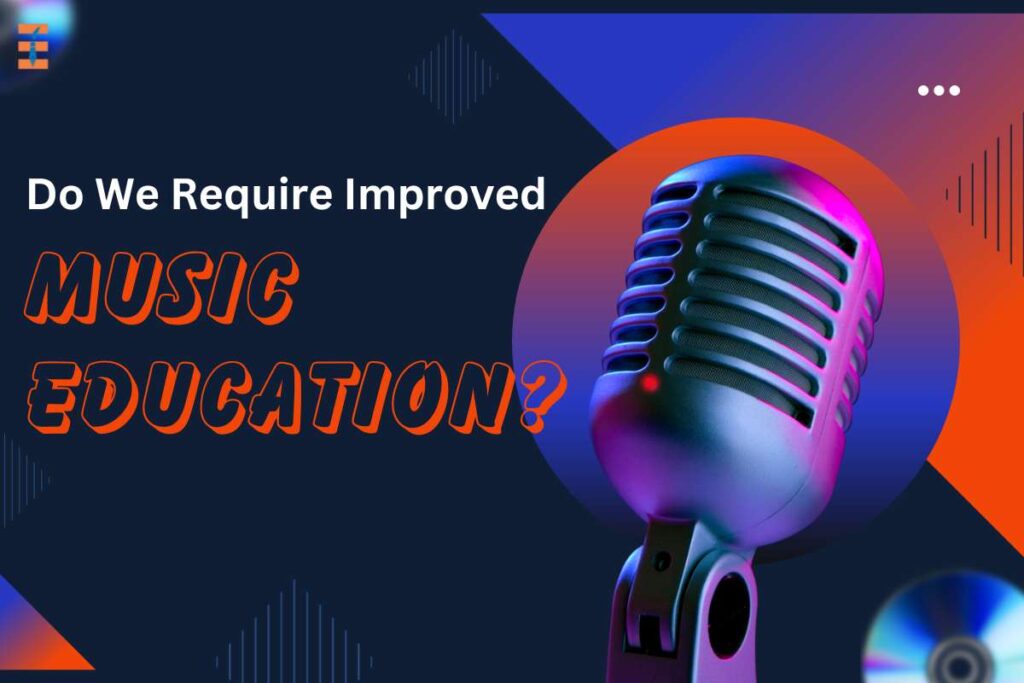Do you now or have you ever played an instrument? Do you believe that music education should be a required component for all children?
The author of “We’re Teaching Music to Kids All Wrong,” Grammy-nominated percussionist Sammy Miller, also founded a business that teaches music to children.
Music educators see a recurring pattern every autumn as classes resume: eager new pupils squeal on clarinets, hold back laughter at the sounds of the tubas and fervently strike a bass drum a touch too hard. It’s a time filled with anticipation for fresh beginnings, excitement, and passion, which is why it’s so depressing to learn that many of those kids will eventually stop playing their instruments.
The fact that so many kids lose interest in music is detrimental to education as well as the state of self-expression and delight. According to studies, students who play an instrument perform better in the academic subjects of science, English, and arithmetic and are more likely to desire to go to college. They are the kids you want your kids to become friends with since they may also be less anxious and more responsible. Although I’ve encountered many people who have regrets, I’ve never met an adult who is specifically grateful for having given up music as a child. Why then haven’t we as educators and parents been able to effectively motivate our own children to keep going?
One thing I’ve discovered in my 15 years of working as a music instructor and in speaking with other teachers is that there is no quick fix. I say this as someone who created an online educational platform because improving music instruction doesn’t require pricey digital peripherals or opulent educational platforms. There is no technology or monetary programme that can turn kids into music fans for life.
Instead, we should start by reevaluating the fundamental principles of music education, both at home and in the classroom. It is the responsibility of parents and educators to cultivate the next generation of lifelong musicians, not just for the love of music but also to give our children deeper, more vivid inner lives and a more beautiful and expressive world.
Mr. Miller exhorts parents and teachers to adopt a fresh strategy for music education:
Even though it has been said repeatedly that “music is a language,” we are hesitant to teach it in that manner. We practise the language together, sharing, speaking, making mistakes, but eventually discovering ways to connect, as we study a language. We don’t just memorise words or spend the entire day reading. This ought to take place in music class as well. It should be normal to enjoy music: Any parent rock weekend band or church ensemble will undoubtedly respond that playing music is not a chore but rather a way of creating community.
Most importantly, we must allow children to behave badly. In fact, we ought to support it. At first, they’ll be awful enough on their own. But far too frequently, children link music in the classroom with a challenging task they can never hope to succeed at, which makes them give up. The search of perfection need not, and should not, be the focus of music. Additionally, the greatest musicians have a wealth of knowledge to impart to pupils on the value of failure.
Students should read the entire article before responding.
Play any musical instruments yourself? If so, how did you discover it? How important is music in your life?
After much “excitement, enthusiasm, and the anticipation,” Mr. Miller claims that many kids eventually stop playing their instruments. What kind of musical training—inside or outside the classroom—have you received? How well has it worked?
Why did you give up if you were one of the numerous persons Mr. Miller mentioned who started playing an instrument but later stopped? Do you believe that you might have persevered more if you had a different approach to music education, such as the one described in the essay?
Mr. Miller shares several suggestions for enhancing music education, such as letting kids be terrible and make a lot of mistakes or encouraging students to write their own simple songs using a few chords, despite the fact that he claims there is no “magical fix” for turning kids into lifelong music lovers. What do you think about his suggested strategy? What further recommendations would you make to parents and educators who want to encourage a young person’s love of music?
According to Mr Miller’s research, pupils who play an instrument tend to perform better in science, English, and math as well as maybe having less anxiety and be more diligent. What advantages of music education have you noticed or had firsthand? When you consider the worth of learning music, do any of these advantages—or others not covered in the essay—come to mind?
Does Mr. Miller’s essay increase your enthusiasm for making music? If not, why not? What instrument (or one different from what you now play) would you learn to play if you could? Why?
Also Read: How Music Primes the Brain for Learning?










